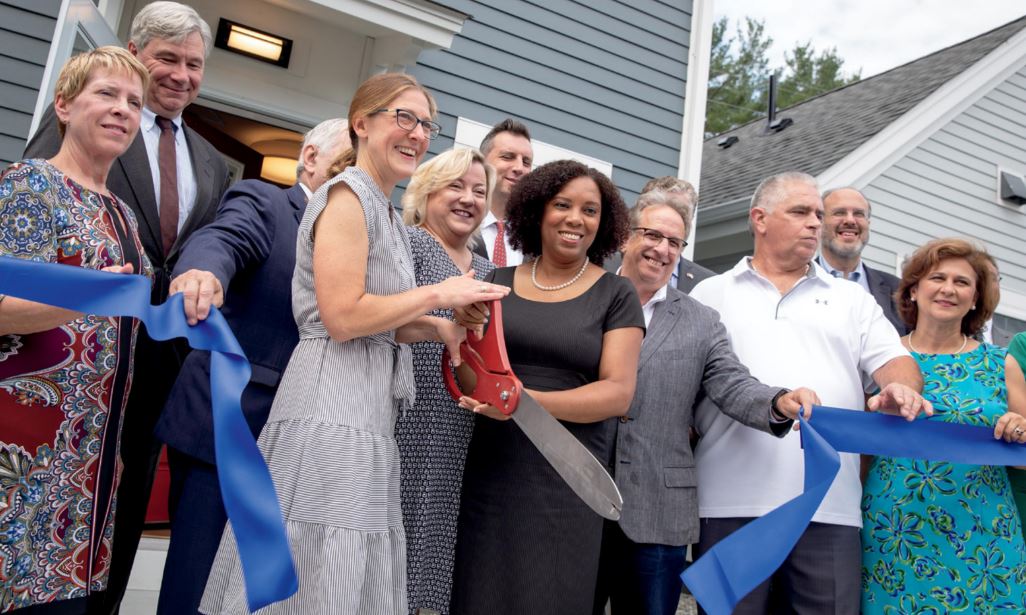
The financing for King Street Commons includes low income housing tax credits,
funds from Building HOMES RI, an RI Housing Preservation and Revitalization Loan
as well as an RI Housing mortgage, and an additional mortgage from LISC Rhode Island.
By Jennifer Pereira
Vice President of Grants & Community Investments
Rhode Island Foundation
Download the 2021 Rhode Island Foundation annual report
The struggle to find housing that everyday Rhode Islanders can afford is not new. Thirty years ago, Rhode Island was coming off its first big leap in real estate prices, when the median price of a single family home doubled between 1986 to 1989. Suddenly, policymakers started to see the reality that many had been living for years: housing was unaffordable to the average Rhode Islander. Seeing the scope of the problem, the Rhode Island Foundation responded with its first big foray into the housing sector: helping bring the national organization Local Initiatives Support Corporation (LISC) to Rhode Island in 1991.
“The Foundation stepped up early with a leadership grant that set the stage, helping bring LISC and its much- needed national resources to Rhode Island,” remembers Barbara Fields, LISC-RI’s original executive director.
During Fields’ 20-year tenure, LISC provided crucial support for the building of 6,500 affordable homes for Rhode Island families.
“Nobody believed community development corporations could build at scale, but when they began constructing dozens and then hundreds of homes, heads turned.


